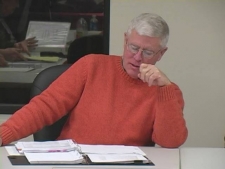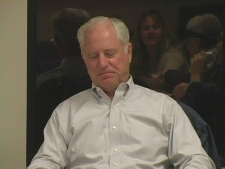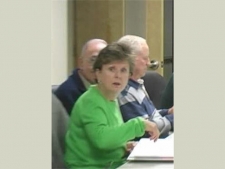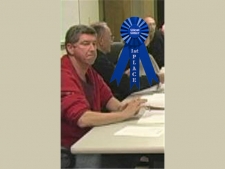Back in April of 2007, we wrote about the contingent payments that LHCC might receive from Aqua Virginia. These payments made it on to LHCC’s 2006 financial statements, audited by Kositzka Wicks & Co of Alexandria. They made it on in a big way – in the amount of $794,213. In our April post, Dear Mike Kilmer, we criticized allowing contingent gains that might never be received to be recorded on financial statements. We expressed the view that recording contingent gains was inconsistent with the accounting principle of conservatism and inconsistent with FAS No. 5. Despite this criticism, the only response we received was from Mike Kilmer, which was really no response at all. Through LHCC’s 11/30/07 Balance Sheet, the most recent one we have available as of this writing, the contingent gain remains on the books.
We quote from Kositzka Wicks’ 2006 audit letter:
…we conducted our audits in accordance with auditing standards generally accepted in the United States of America. Those standards require that we plan and perform the audit to obtain reasonable assurance about whether the financial statements are free of material misstatement. An audit includes examining, on a test basis, evidence supporting the amounts and disclosures in the financial statements. An audit also includes assessing the accounting principles used and significant estimates made the Association…
2007 is now in the history books, and we don’t think any check is coming from Aqua Virginia for 2007’s contingent payment. Let’s forget what actually took place and consider only the reasonableness of the estimates provided by LHCC.
In our earlier post, we provided a variety of readily available data to show that no reasonable estimate would predict the contingent payments would be received for the next several years. In fact, Aqua Virginia’s publicly available SCC filings from February 2007 show that their accounting entries do not record these contingent payments on their financial statements. If Aqua Virginia’s auditors believed there was a reasonable expectation that these contingent payments would be made, wouldn’t they be recorded on Aqua Virginia’s books?
Did LHCC give its auditors complete and accurate information?
In February, Wayne Poyer told the auditors in his management representation letter:
There are no estimates that may be subject to a material change in the near term that have not been properly disclosed in the financial statements. We understand that near term means the period within one year of the date of the financial statements.
Then, in July Lake Holiday homeowner Bill Masters raised the issue of collecting the contingent payments at a public meeting. Wayne Poyer openly told members:
Mr. Masters criticizes the $76,000 which Aqua America will return to the association, assuming we meet a certain number of hookups. And he’s right about that, that’s part of the contract. He’s also right that during this terrible market downturn we’ve got, we probably won’t meet that.
Here’s an actual audio recording of Wayne Poyer’s remarks:
We. Probably. Won’t. Meet. That.
Evidently, Wayne Poyer convinced the auditors on February 26th that the Aqua Virginia contingent payments would be received. Then he flip-flopped when speaking to members – a little more than 4 months after his representation to the auditors. That seems to fall within the near term time frame, and not getting the money seems to be material.
Maybe not collecting the early year payments that make up the $794,213 is not a “material change” to Wayne Poyer.
Unfortunately, LHCC’s representations to its auditors also raise other questions. Wayne Poyer informed the auditors that “…as of February 26, 2007…there are no liens or encumbrances on such assets nor has any asset been pledged.” Really? Does the $750,000 Wachovia note executed on February 2, 2007 count? Does the deed of trust pledging LHCC real estate count? Those documents are part of the balloon note that Wayne Poyer and John Martel signed to refurbish the clubhouse. Both the loan documents pledging assets and the letter to auditors claiming there were no assets pledged were signed by the same person – Wayne Poyer.
These are simple and straightforward representations to LHCC’s own auditors. Why aren’t they accurate?






